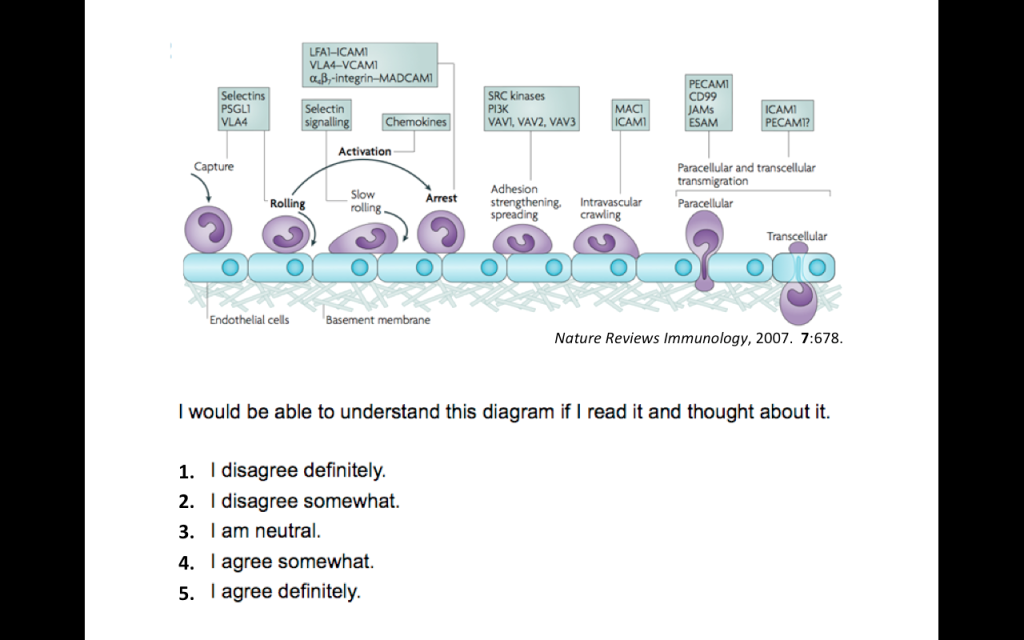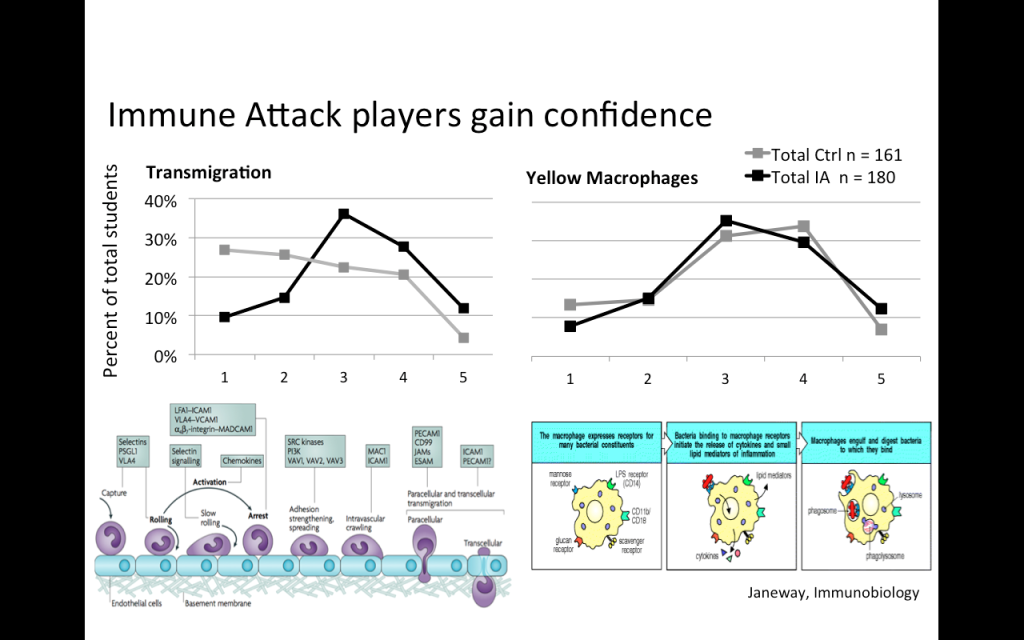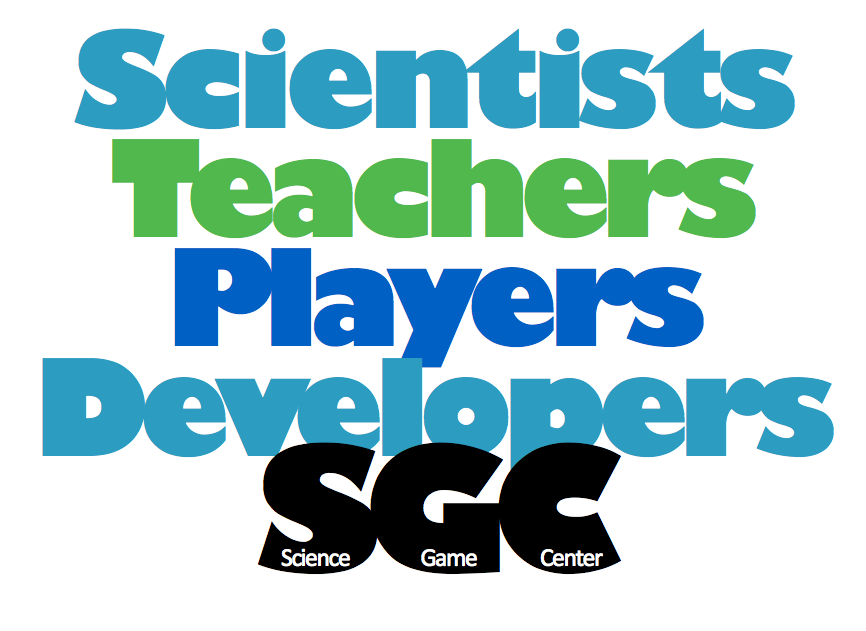It is well known that people walk away from STEM careers despite their sincere interest and excellent abilities. Most of the reasons listed for why people who have expressed an interest, chosen the field, have done as well as any one else, would choose to leave or feel out of place have something to do with a feeling of not belonging. Feeling like you are “the only _____ who is trying to do this” can add to your feeling of being out of place. Some excellent people are working on this problem, an excellent group, STEM4all invited me to be a part of their efforts, and their efforts have produced a fantastic collaboration that will get girls coding robots for socially relevant reasons…. I am very proud to be a part of a group that has fostered such great work and such great collaboration. But I am not working with them, I am over here, making a video game about science? What am I thinking?
I am not an expert on how to increase women or under represented minority group members (URM) participation in science. However, I am an expert on feeling insecure about my own understanding and my own abilities in science.
I know that sometimes when I sit down at my books and notes I feel like I am joining old friends and other times I feel like I am surrounded by impolite strangers. The words, the images, the concepts can feel familiar to me and they can also feel foreign to me. No matter what other situation I am in, when I sit down to read an article, there is a private moment between me and the article. There is an intimate relationship between my brain and the diagrams in the article. This intimate relationship provides me with the joy I find in science. The love I feel for my work comes from these private moments. The joy I find in these private moments, the concepts, the way of thinking, the way the ideas push my brain into new formations… this intimate relationship sustains me. But sometimes the new ideas are too much, the words and diagrams do not make sense to me: I feel like I have failed my relationship. When this happens I am scared, alone, as if my best friend is angry with me for not listening. When this private relationship between me and my science fails me, this is when I need support from my peers, from my mentors. This is when I seed some reassurance that I am not failing because of some physical shortcoming specific to me.
The feeling of being out of place starts in your heart and in your head and the start of the pain has little to do with the outside world. The pain starts when you feel like you don’t understand your beloved science. Then, when you have lost this friend, when you are suffering from the feeling of having failed your closest relationship, you need support. If the support is there, if peers, mentors or family are there who can keep you going through this hard time in your relationship with your science, then you are more likely to go back and keep trying.
I created a video game about cells and molecules. I did not include any humans the game: there is just some text, informing you that you are a nanotechnology professor who is eager to remotely pilot a microbot inside a patient’s body. Everything else is first person and you are seeing everything through the windshield of a microbot that is inside the body. I wanted the game to focus cells and molecules, to put the player in the world of the cell. After this game I do not want to know if the player is interested in “science.” After they play my game I do not ask whether the player could imagine themselves in a science career. Instead I ask them about a molecular biology diagram, and I ask, “Do you think you could understand this?” I want to know about their intimate, personal relationship with the diagram. Do they feel like it is theirs? Do they feel like that story in that image is their kind of story? Do they find joy in this interaction?
I believe that we see out relationships that make us feel comfortable and we seek out our favorite subjects in school for similar reasons. We tend to feel comfortable with characters in stories and we do not shy away from reams of facts about our favorite characters in comic books, or TV shows, or paperbacks… I want to provide this kind of comfort, familiarity and joy with molecular biology to a wide audience. To students in grade school, high school and also adults who might otherwise turn away from molecular biology because the diagram made them feel like they were in a strange place, interacting with foreign ideas.
Here is the data that I collected and published recently. This data gives me reason to believe that a video game can indeed change our feelings about the diagrams we encounter. I designed these confidence questions to test for a change in how students felt about diagrams, particularly diagrams about the molecular cell biology in the game. I found a clear, consistent increase in the student’s reports of confidence, compared to their classmate who played a non-molecular science game. See my paper for details.
This is why Immune Defense is a casual game, this is why I paid so much attention and made so many iterations on the introductory levels: I want to make wide audience familiar with cell biology. This is why the art and the action in Immune Defense so carefully mimics cell biology and biochemistry: I want to foster a joyful love affair with this beautiful world. A love that will bring more people to read more and perhaps act on their knowledge by voting and a love that will give students of all ages a stronger relationship with the diagrams and the concepts they encounter. My hope is that this relationship will be sweet and meaningful and that it is strong enough to pull them back in and perhaps strong enough to motivate them to seek a mentor for advice when the love affair gets rocky.
Please support us on Kickstarter! www.ImmuneDefenseGame.com We need some funds to get our game onto tablets and to polish up the level designs/timing so the game is engaging to the wide audience we want to reach!



